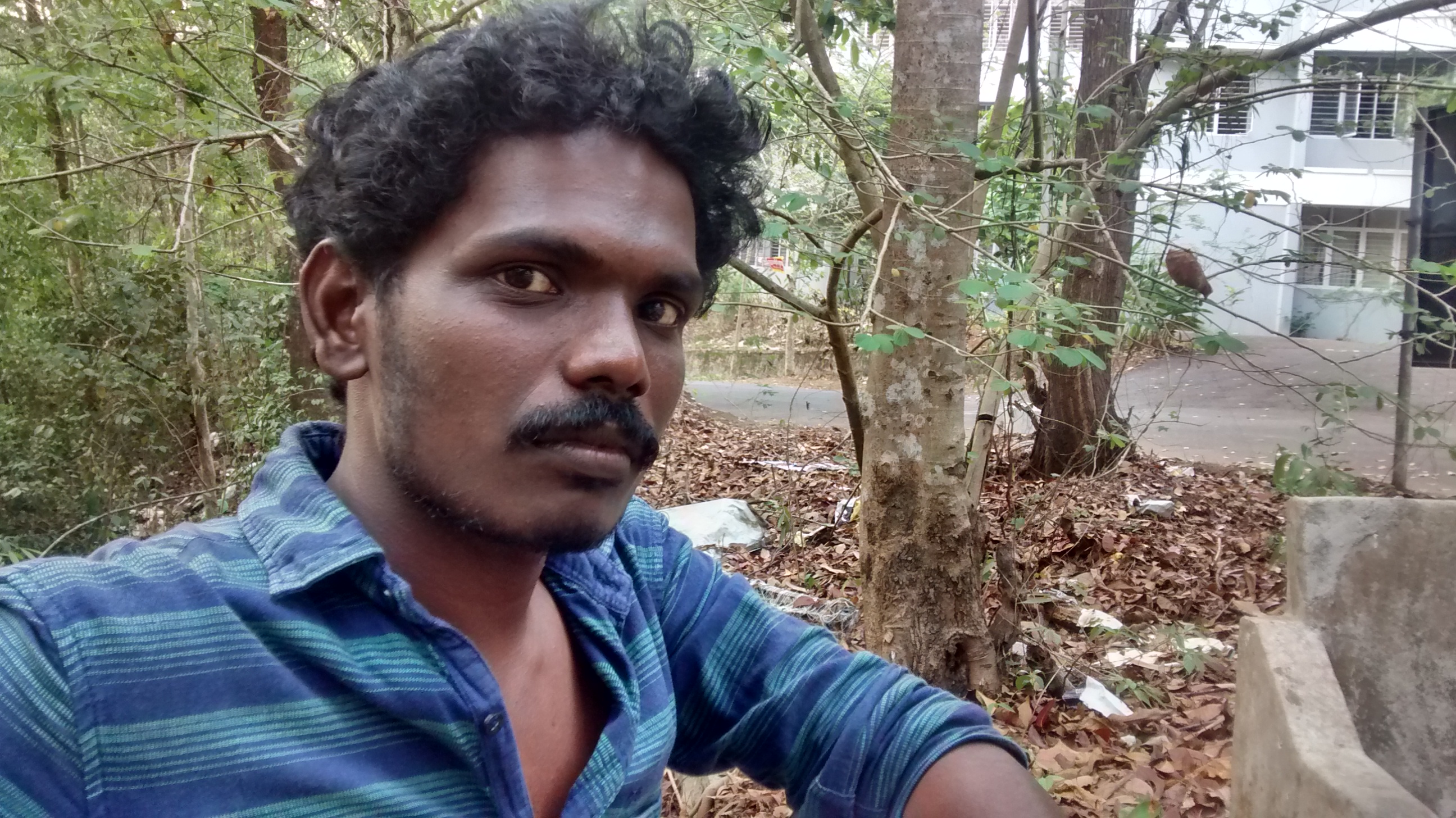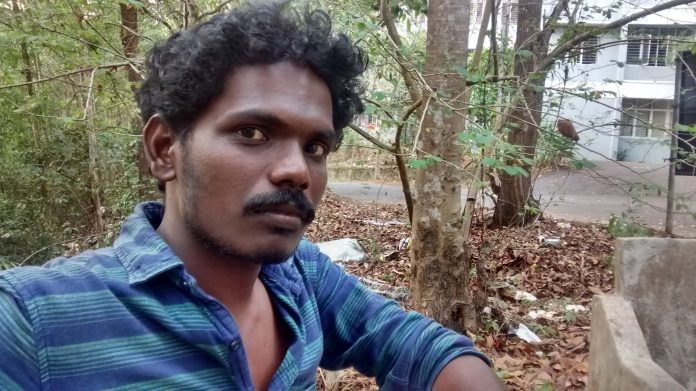By Amit Kumar, Twocircles.net
This is the third and final part of a three-part series of stories documenting caste discrimination against Dalit, Bahujan and Adivasi students /faculty at the Mahatma Gandhi University, Kottayam, Kerala.
“An alternative Political platform.”
“These four words were enough for them to deem me as dangerous and fit enough to be attacked.”
When Vivek Kumaran said in this during our conversation, it was followed by a pause. Vivek sipped his tea, looking for more words, wondering if he wanted to add anything to this. Then he said, “Just two words actually: Political platform. That is what they took out from a day-long meeting. The issue was never about an ‘alternative’ to their politics. The issue was who was raising it, and for whom.”

The Mahatma Gandhi University (MGU) in Kottayam is a reputed state university and attracts students from across Kerala, including hundreds of students from the marginalised communities. With students from diverse backgrounds, it would also be fair to expect student politics in the campus reflecting the same, but that is not the case in MGU. In fact, it is not even close to representing student demographics. The CPI (M)’s Students’ Federation of India (SFI) has such a tight grip on students politics in this University that the moment you step inside the campus, you could be forgiven for believing that SFI is the only student party here: SFI signboards shine right in front of the university gate, the college roads stenciled with ‘SFI’, and SFI flags and banners the only ones that don the campus. And in conversation with students from the marginalised communities, it becomes clear that the SFI has a simple rule: it’s their way or the highway.
As Vivek found out.
Vivek, who belongs to the Pulaya caste (Schedule Caste), joined MGU in March 2016. Just over a month ago, Rohith Vemula had committed suicide at the University of Hyderabad, and in MGU also students were discussing this extensively and raising their voice against caste-based discrimination faced by the students. The SFI too joined, and of course, led the protests, as Vemula’s tragic death and exposed the role of the then HRD Minister Smriti Irani, the local BJP MP and the pro-BJP Vice Chancellor of the campus Apparao Podile. However, as Vivek soon found out, the SFI was not so welcoming to such issues being brought up on their own campus. Not that this surprised Vivek.
As a graduate student in Aluva Union Christian College, Vivek had been for a short period, a member of the Kerala Students Union (KSU), the Congress’ student wing and one-time rival to SFI. “I joined it because my friends were part of it. It was an extension of my friend circle,” he said. However, as he dealt with the history of marginalised communities in the country, and read the works of Dr. Babasaheb Ambedkar, he realised that the KSU form of politics was not his cup of tea. “That party could never represent my community or my politics. It is based too much on idolising certain people,” he says.
In fact, such was his disillusionment that during his Masters in Social Work from Kannur, he stayed away from campus politics completely. “But it was not as if I was away from politics itself. I was reading, learning and understanding Ambedkarite ideology. It became clear to me that neither SFI, with its idea of vanguard politics, nor KSU with its blind following of the Congress would be of much use to me,” he says.
No wonder then, that when he arrived in MG University in Kottayam, he saw a lot of discussions about the institutional murder of Rohith Vemula. “In some ways, that was my first brush with Ambedkarite politics, and the way we organised against institutional bias,” Vivek said. However, this was not an effort to challenge SFI, he added. It was more an attempt to organise a platform for marginalised students to voice their grievances. “We never got together to form an alternative against SFI. That was not the aim…caste discrimination goes much beyond one organisation or an institution. It is embedded in our system across all walks of life, and our protest was against that,” he added.
Amedkarite thoughts and the discomfort of SFI
The campus students started meeting, discussing and understanding Ambedkarite thoughts and ideas, along with other prominent scholars like Periyar, Phule, and others. The Ambedkar Students Association (ASA) was not formed yet, but the elements were there. And this, the SFI did not seem to like.
On January 10, the threats and insinuations turned life-threatening, and it had nothing to do with speaking against SFI per se. “We had organised a day-long seminar for the LGBT people in the campus and were discussing ways to address their grievances. Along with this, there were also discussions to talk about how they can also be represented in students politics to ensure that they do not face discrimination of any sort,” he says. “LGBT people, in my opinion, are also marginalised and hence there was a need to address that. Towards the end of the seminar, we decided to form an alternative political platform so that they are adequately represented,” he added.
And that is what the SFI took exception to. “I guess they could not digest the fact that I, a Dalit, was speaking about a political platform which completely ignored the SFI,” he says. “They created a ruckus towards the end of the seminar, but I thought that was the end of it. It was not.
Beaten up for daring to speak up
That night, some SFI cadre barged into his room, including the University secretary, and started abusing him, bringing his caste into the equation. “How did you dare stand up against SFI? You will not be allowed to work like this. If you repeat this, your life will not be spared. You are here to study, stick to that,” they said. But before Vivek could reply, he was struck by the SFI cadre on his head, and kicked. Vivek had had a bad accident in his past and his head had suffered extensive damage then. After he was beaten up, he soon started vomiting and before long, he had fainted in his room. “I was taken to the hospital by my friends, where I stayed for four days. I sustained head injuries,” he says. After he was discharged, he went home to Ernakulam for a few days, before returning to the campus on January 28.
Two days later, Ambedkar Students Association was formally launched on the campus. However, Vivek says that the attack on him had nothing to do with the announcement since it had been a long-time coming. He also added that he held no posts in the party and that he would not do so in future also. “My aim is not to be a leader. I am merely a student of Gandhian studies and a follower of Ambedkarite ideas. I will continue doing that, and despite threats and attacks, I will never stop,” he says. He added that he would, however, support ASA in all ways possible.
The SFI party leadership refused to even acknowledge that they had attacked Vivek, and never apologised. Instead, in order to defend their actions, they began to spread lies about Vivek. “I was called a Ganja (weed) peddler who supplied it to all the students. My morality was questioned, and the SFI people started saying things like I was sleeping with a lot of women. Rumours were started that a lot of people were complaining about the condoms thrown in the toilet near my room. SFI calls itself progressive, but they can give the ABVP a run for its money when it comes to tarnishing a student’s image by using morality as a point. ” he adds.
As for the follow-up on the attack, Vivek says that the FIR was filed just a day after the attack, but that there had been almost no police follow-up on the same. “The charge sheet was filed only a week ago, and there have been no arrests. But this is expected since the police are likely to follow the orders of the government. Even the administration did not take any action against the students, and that is also understandable given the grip of CPI (M) on the faculty. Their control is absolute in this area, but even then one Dalit student speaking up scared them so much. It says a lot about their politics,” Vivek adds.


